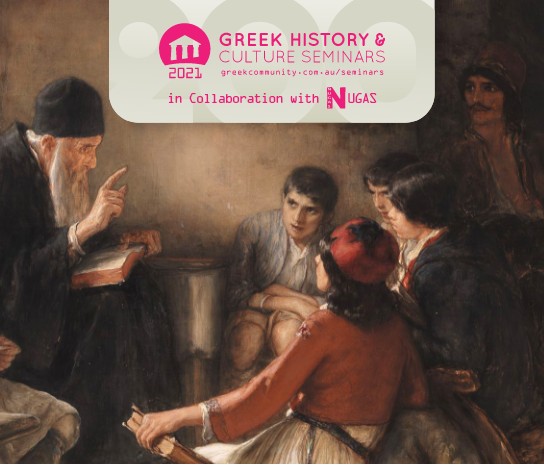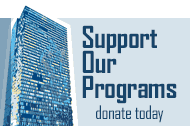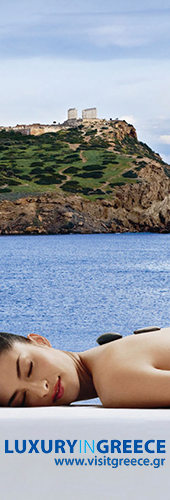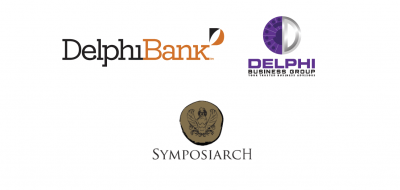- About Us
- Latest News
- Calendar
- Education
- School History
- ELA - For Toddlers
- Greek as a Second Lang.
- Greek as a Primary Lang.
- Conversational Skills (Online)
- Online Greek Courses
- Greek for Adults
- Ancient Greek
- Open Seminars
- Creative Drama
- Traditional Greek Dance
- Apply to Teach
- Holiday Program Enrolment
- Excursion - Museum
- School Polo Order Form
- Parent Notice to School
- Community Churches
- Membership
- Greek Centre
Eventlist
Event

- Title:
- Open Online Seminar: Greek War of Independence (1821-1832): Between history and ‘mythistory' Part 2
- When:
- 25.02.2021 19.00 h
- Where:
- Live Streamed Seminars Online Delivery -
- Category:
- Education
Description
A Crash-Course in the 1821 Greek Revolution, In Collaboration with NUGAS
Presenter: Yianni Cartledge
Language of Presentation: English | R.M.L.G.*: 0 - No knowledge of Greek required.
Synopsis
This two-part series looks at the Greek War of Independence from a range of critical perspectives. Part I examined the relevant background knowledge of the Revolution, establishing Greece and the Greek people’s place in the Ottoman Empire, Europe and the world during the eighteenth and early-nineteenth centuries, as well as the beginnings of the Revolution and the initial outbreak. Part II will then deal with the War of Independence itself, including, but not limited to, the massacres, the civil war, the Egyptian invasion and Navarino. It then caps the study off with the aftermath of the war and its modern legacy. The discussion of ‘who was now a Greek?’ is also explored, capping off last week’s discussion of ‘who was a Greek?’ Although much is covered, this series hopes to provide a diverse range of perspectives, ideas and meanings, and to help build a constructive discussion of the War on its 200th anniversary.
Bio
Yianni Cartledge is a candidate for PhD at Flinders University, South Australia. Having a passion for Greek, Ottoman, British and Australian histories, as well as migration and diaspora histories, his current project aims to combine all these areas. The thesis, titled 'Aegean Islander Migration to the United Kingdom and Australia, 1815-1945: Emigration, Settlement, Community Building and Integration', will investigate the cases of the Chiots of London and Ikarians of South Australia. His 2018 honours thesis explored the 1822 Chios Massacre under the Ottoman Empire and the ways in which it affected British attitudes towards the Greeks, leading to Christian-humanitarian intervention. An article deriving from his thesis, titled 'The Chios Massacre (1822) and early British Christian-humanitarianism', was published in February 2020 in Historical Research. He recently published a biographical entry of South Australian fisherman and seafood merchant George Angelakis in the Australian Dictionary of Biography.
HOW TO PARTICIPATE
In order to keep everyone safe we have organized this seminar to be delivered online. However, we are well aware that for some, a large part of the appeal of our seminars is the very active audience participation. Therefore we are providing two ways for you to enjoy the seminar:
If you want to actively participate and ask questions at the end of the seminar you will need to join us through a Zoom Webinar - for which you'll need to pre-register by following this link:
https://us02web.zoom.us/webinar/register/7516128872911/WN_jry9NdzVRzOcjRIazF9zYg
If you prefer to sit back and enjoy the show, just join us through our Facebook page or our YouTube page where we'll be live streaming the event.
Suggested reading - provided by the presenter
Benedict Anderson, Imagined Communities: Reflections on the Origin and Spread of Nationalism, revised edn., Verso, London & New York, 2006, 6.
M. S. Anderson (ed.), The Great Powers and the Near East, 1774-1923, Edward Arnold, London, 1970.
Roderick Beaton & David Ricks (eds.), The Making of Modern Greece: Nationalism, Romanticism, & the Uses of the Past (1797-1896), Ashgate, Farnham, Surrey, 2009.
David Brewer, The Flame of Freedom: The Greek War of Independence, 1821-1833, John Murray, London, 2001.
Richard Clogg, 'Korais and the Movement for Greek Independence', History Today, vol. 33, no. 10, October 1983, 10-4.
Douglas Dakin, The Greek Struggle for Independence, 1821-1833, University of California Press, Berkeley, California, 1973.
Nicholas Doumanis, A History of Greece, Palgrave Macmillan, Basingstoke, Hampshire, 2010.
Nicholas Doumanis, Before the Nation: Muslim-Christian Coexistence and its Destruction in Late Ottoman Anatolia, Oxford University Press, Oxford, 2013.
Thomas W. Gallant, Modern Greece: From the War of Independence to the Present, 2nd edn., Bloomsbury Academic, London, 2016.
Stathis Gourgouris, Dream Nation: Enlightenment, Colonization, and the Institution of Modern Greece, Stanford University Press, Stanford, California, 1996.
Michael Herzfeld, Ours Once More: Folklore, Ideology, and the Making of Modern Greece, University of Texas Press, Austin, 1982.
Eric J. Hobsbawm, The Age of Revolution: 1789-1848, Mentor Books, Toronto & New York, 1962.
Cemal Kafadar, Between Two Worlds: The Construction of the Ottoman State, University of California Press, Berkeley, Los Angeles & London, 1995.
Thanasis Kampagiannis, 'Greece's 'secret schools' are a nationalist myth', Financial Times, 29 October 2016: https://www.ft.com/content/36188e7c-9169-11e6-a72e-b428cb934b78
John S. Koliopoulos, Brigands with a Cause: Brigandage and Irredentism in Modern Greece, 1821-1912, Clarendon Press, Oxford, 1987.
John S. Koliopoulos & Thanos M. Veremis, Modern Greece: A History since 1821, Blackwell, John Wiley & Sons, Chichester, West Sussex, 2010.
Heath W. Lowry, The Nature of the Early Ottoman State, SUNY Press, Albany, New York, 2003.
Davide Rodogno, Against Massacre: Humanitarian Interventions in The Ottoman Empire 1815-1914, Princeton University Press, Princeton, 2011.
William St Clair, That Greece Might Still Be Free: The Philhellenes in the War of Independence, 2nd edn., OpenBook Publishers, Cambridge, 2008.
Babis Stavropoulos, 'Ζαΐμηδες και Πετιμεζαίοι – Κοτζαμπάσηδες και κλεφταρματολοί...', Neos Kosmos, 13 January 2021: https://neoskosmos.com/el/267664/kleftarmatoloi1/
Christopher Montague Woodhouse, The Greek War of Independence: Its Historical Setting, Hutchinson's University Library, London, 1952.
Robert E. Zegger, 'Greek independence and the London Committee', History Today, vol. 20, no. 9, 1 April 1970, 236-44.
https://us02web.zoom.us/webinar/register/7516128872911/WN_jry9NdzVRzOcjRIazF9zYg
Sponsors
During the course of the year considerable expenses are incurred in staging the seminars. In order to mitigate these costs individuals or organisations are invited to donate against a lecture of their choice.
You too can donate for one or more seminars and (optionally) let your name or brand be known as a patron of culture to our members, visitors and followers, as well as the broader artistic and cultural community of Melbourne. Please email: This e-mail address is being protected from spambots. You need JavaScript enabled to view it or call 03 9662 2722.
We also thank the following corporate sponsors:
* R.M.L.G.: Recommended Minimum Level of Greek in order to enjoy this Event, on a scale of 0 to 5.
Venue
Online delivery for seminars happens over 3 different platforms in parallel (simulcasting).
The 3 platforms we have selected are YouTube, Facebook and Twitter.
You don't need an account to watch the live broadcast with any of the above services.
However, if you want to participate in the Q&A at the end of the seminar you'll need an account with the equivalent service in order to post your question in the comments.
Our YouTube channel is at https://youtube.com/gocmv our Facebook page at https://www.facebook.com/Greekcommunitymelb/ and our Twitter page at https://twitter.com/gocmv/
If the speaker allows us to record the seminar, it will stay up on our page for on-demand viewing, if not, we will delete the seminar video after the live-streaming ends.
EventList powered by schlu.net








